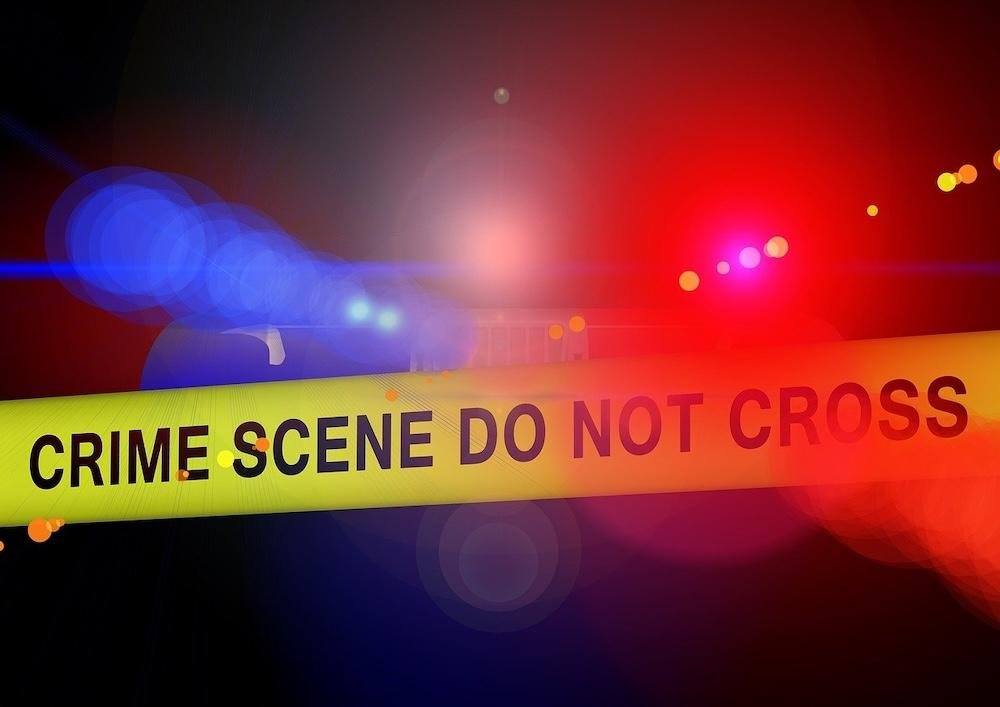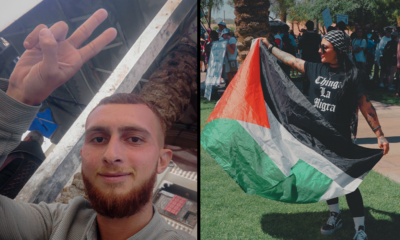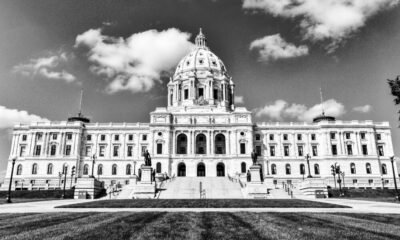crime
Campus Shooting at UA Ignites Political Awakening, Sparking Family Transformation

Adriana Grijalva, a University of Arizona student, faced a chilling moment in the fall of 2022 when she received a text from her cousin alerting her about an active shooter on campus. A former student had shot a professor 11 times, resulting in the tragic loss of life. The anxiety rippled through her family as she sought to ensure her sister and younger brother were safe and accounted for in the aftermath.
The impact of this violence was profound; it transformed Grijalva from a passive observer of politics into a passionate advocate for gun control measures. As the 2024 election approaches, gun violence has become her primary focus. “I am not just worried about my community — I see this as a nationwide crisis,” she stated, determined to invoke change by participating in the electoral process.
This November marks a significant milestone for approximately four million Latinx Americans who will be voting for the first time. In Arizona, Latinx voters represent a quarter of all eligible voters, a demographic that could sway the election. Grijalva is among them, keen to make her voice heard in a political landscape shaped by gun violence and safety concerns.
Survey data indicates that support for gun control policies is especially high among Latina voters in Arizona. About two-thirds support stricter regulations, driven by their experiences and the ongoing discourse surrounding gun violence. This demographic, which significantly influenced the 2020 election, remains a powerful force in Arizona and across the country.
The legacy of past tragedies, such as the mass shooting at a grocery store in Tucson that injured former Congresswoman Gabby Giffords, weighs heavily on Grijalva’s generation. They have grown up amidst the trauma of school shootings, making their voices in the upcoming election more urgent. Grijalva plans to support Democrats who advocate for essential safety measures, including universal background checks and restrictions on assault weapons.
After the Uvalde shooting in 2022, which claimed the lives of 19 children and two teachers, Grijalva felt the full impact of gun violence on her community. “The delay in law enforcement’s response felt personal. This is my Latino community,” she reflected, highlighting the emotional toll these events have taken.
Vice President Kamala Harris has made gun violence prevention a pillar of her campaign, advocating for measures like reinstating an assault weapons ban. Her rhetoric resonates with advocates like Grijalva, who are calling for meaningful reforms to ensure community safety.
In the wake of the gun violence on campus, Grijalva became an advocate herself. Initially hesitant, she joined Students Demand Action, a student-led gun violence prevention group, and became involved with Arizonans for Gun Safety, promoting stricter background checks and legislation against unsafely stored firearms.
Grijalva’s advocacy transcends personal experience; it reflects the concerns of her family as well. Conversations about gun violence have transformed dynamics within her household, where her mother and sister also plan to vote this cycle. Their collective experiences underscore the urgency in addressing systemic issues of gun access and safety.
As the election nears, Grijalva is determined to make a difference. “It’s crucial that we choose candidates who align with our vision for safety,” she stated. Her family plans to vote together, emphasizing the collective importance of participating in democracy and the power of their shared voices.
Grijalva’s commitment to advocating for gun control resonates deeply in light of recent events. On the second anniversary of the university shooting, another incident occurred on campus, reinforcing her role as a student leader. Advocating for timely safety alerts and mental health support for students has become a priority in response to escalating violence.
“I never thought my presidency would necessitate addressing gun violence,” she concluded, recognizing the bleak reality faced by many across the nation. Grijalva’s journey from fear to activism illustrates the transformative power of personal experiences in shaping political engagement and community responsibility.




![Pickup truck fire near Smith-Enke Road and John Wayne Parkway. June 16, 2025. [Brian Petersheim Jr.]](https://arizonanews.org/wp-content/uploads/2025/06/Pickup-Truck-Ignites-in-Fiery-Blaze-at-Cobblestone-Fiesta-400x240.jpeg)
![Pickup truck fire near Smith-Enke Road and John Wayne Parkway. June 16, 2025. [Brian Petersheim Jr.]](https://arizonanews.org/wp-content/uploads/2025/06/Pickup-Truck-Ignites-in-Fiery-Blaze-at-Cobblestone-Fiesta-80x80.jpeg)












